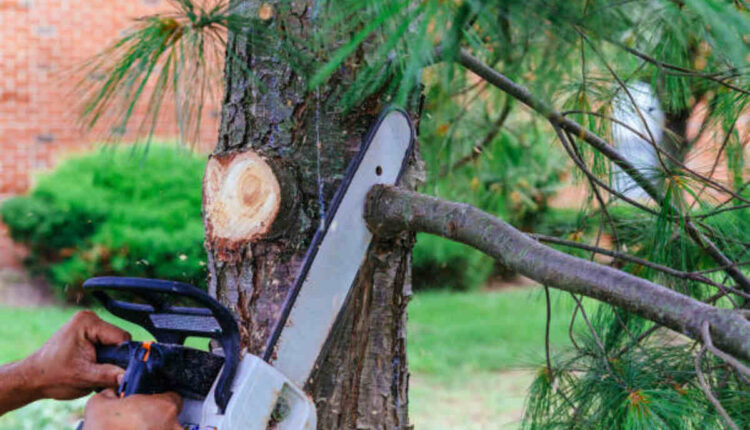Storm Damage and Tree Emergency Services
Storms can do substantial damage to trees and their branches, with strong winds, lightning strikes, or other causes contributing to significant tree damage. When this occurs, three emergency services must be called out as soon as possible to handle these situations effectively and quickly. The best guide to finding tree service San Ramon ca.
An arborist with extensive training will assess and respond accordingly, perhaps by first securing the area to ensure safety.
Damaged or Broken Branches
After storm damage has caused damage to trees, it’s essential that emergency services clean up debris and repair broken branches or limbs. Furthermore, these services offer support wires and braces to stabilize leaning or unstable trees.
First and foremost, in tree emergency services, it is to assess any damage and determine whether it can be repaired. While this task may seem complex to those unfamiliar with such work, an arborist can quickly recognize any hazards that need addressing and help restore trees to health quickly and safely.
Most broken branches can be saved as long as there are enough strong limbs left standing to support future growth and maintain a healthy canopy. However, this depends on the extent of damage to both limbs and the trunk; minor trunk injuries typically heal quickly like cuts do; however, if major limbs have been lost and/or its leader damaged then removal may need to be considered as well as repair options.
Damaged trees become even more hazardous if their cambium tissue becomes injured, as this prevents water and nutrients from reaching their branches and leaves. Construction equipment dings, lawn mower blade strikes, improper pruning techniques, or natural disasters such as earthquakes and hurricanes may cause such injuries.
Exposed Roots
Tree roots may become visible above ground for various reasons. Most often, this is due to soil erosion caused by heavy rainfall and strong winds, with roots exposed as the surrounding surface wears away under heavy loads such as heavy rainfall or winds. Trees planted too close to buildings or structures may grow closer to the surface and cause damage, such as sidewalk cracking, foundation issues, and driveway flooding. Furthermore, compacted soil or obstructions preventing air infiltration into roots, forcing them to seek oxygen and water elsewhere, may force their roots toward the surface, thus making their presence visible above ground.
Roots that become exposed are vulnerable to damage by pedestrian traffic, equipment (like mowers and string trimmers), and animals that graze nearby. Once exposed, roots become vulnerable to being damaged or killed due to pedestrian foot traffic, equipment like mowers and string trimmers, and animals who graze nearby. Injured roots cannot perform their vital job of transporting water and nutrients throughout a tree, which puts undue stress on it and increases susceptibility to diseases or insect pests.
Mulch is the preferred solution for fixing exposed roots. Not only can it insulate and protect roots, but it can also protect pedestrian traffic and eliminate the need for mowing. Just be sure to use natural, uncolored mulch that doesn’t absorb dyes or harmful chemicals into the tree, avoid digging near roots that could sever them, and water the tree well before and after digging to facilitate wound closure and aid recovery.
Cracks
Trees pose a considerable threat to homes and vehicles during stormy weather. Even healthy trees that have been compromised by strong winds or lightning strikes can become hazards that endanger property and pose significant safety concerns for families.
Cracks and fissures in trees’ wood can indicate serious issues that require immediate attention. In addition to being unsightly, fractures weaken trees and make them more prone to further damage during strong winds or rainfall storms—these cracks usually appear as long splits running through their bark.
Frost cracks result when water in the bark and wood expands and contracts due to fluctuating freezing and warming temperatures. They typically appear on the southwest side of a trunk and run along its length. Left unattended, frost cracks reopen each winter, threatening the integrity of a tree’s health and well-being.
When you notice signs of potential tree damage, call an emergency tree service immediately to evaluate it. The cost will depend on the nature and extent of work to be completed; some homeowner insurance policies cover such expenses. No matter what the price may be, it’s worth investing in quality services to protect both family and property.
Leaning Trees
Leaning trees pose an immediate threat, particularly if they are located near your home or other structures, power lines, or areas frequented by pedestrians. They must be given immediate attention to remain standing.
Damage to roots or trunks, soil erosion, or weather conditions such as high winds or rain are just some of the factors that may contribute to a leaning tree, leading to its inevitable collapse and potential danger to life and property. Without intervention from tree services and authorities, leaning trees pose an immediate safety risk and considerable property risk—further jeopardizing safety while potentially threatening personal safety and life.
Emergency tree services can quickly remedy a leaning tree’s situation by installing a support system or entirely cutting it down, depending on its location and cause.
Protecting trees requires regular inspections, especially after major storms or periods of extreme hot and cold temperatures. Be vigilant for signs of trouble such as large branches dangling precariously from their trunk or cracks appearing along their branches – should any such issues arise, it’s wise to contact a tree care expert immediately so as to minimize damages and avoid potential danger.



Comments are closed.